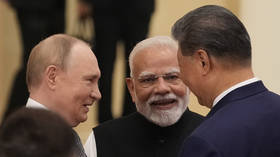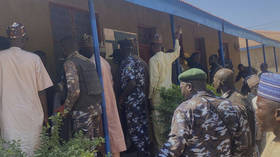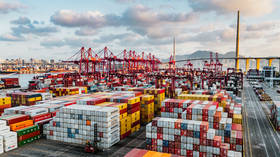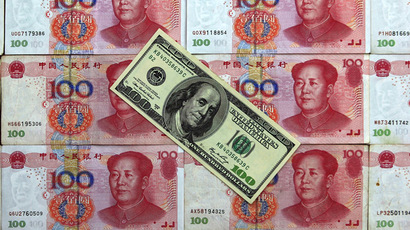Russian shoe retailer to pay China in rubles
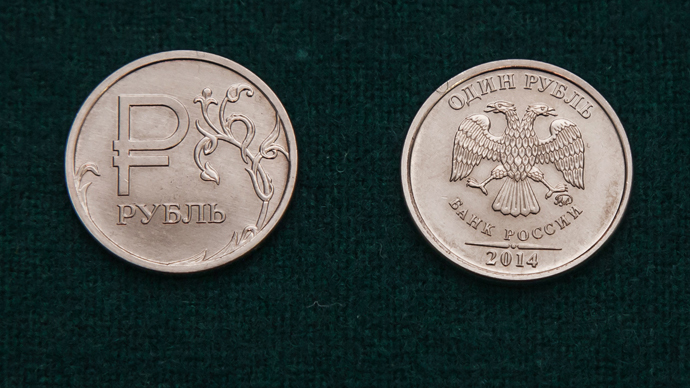
Russia’s biggest mid-range footwear retailer, Obuv Rossii, is to buy from Chinese suppliers in rubles instead of yuan, offsetting the high cost of currency conversion. It joins Gazprom Neft as one of the first Russian companies to use ruble contracts.
“The signing of the first contract to settle contracts in rubles with Chinese suppliers is the next step in building cooperation with our partners in the country,” Anton Titov, the chief executive and main shareholder, said in a statement posted on the company’s website Thursday.
The four-year contract is worth $9.8 million (400 million rubles) and will begin in November. VTB, Russia’s second largest bank, which has been operating in Shanghai since 2008, will oversee the transactions with New Rise, one of China’s largest export credit agencies, based in Chengdu, Sichuan Province.
The Siberian shoe company has been doing business in China since 2010, and is one of Russia’s top five shoemakers and retailers. The company is growing rapidly, with revenues expected to hit between $170-220 million (7-9 billion rubles) in 2007.
Footwear sales in Russia more than doubled in the last decade. In 2013 sales increased by 9 percent, and in 2012, sales grew by 12 percent. Sales are forecast to reach 767 billion rubles by 2018, up from 359 billion rubles in 2007, more than doubling in the 10 years, according to data from Euromonitor International.
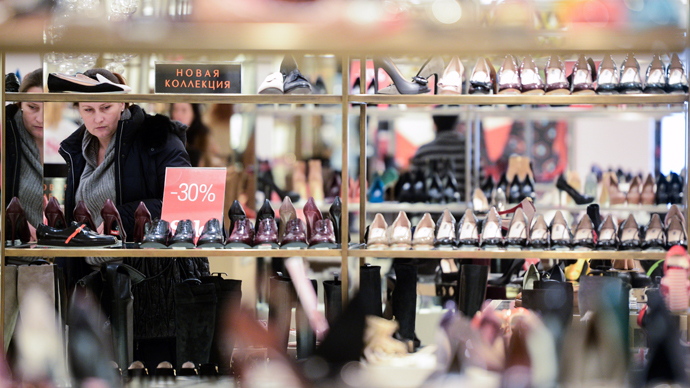
Moving East
The tense geopolitical standoff with the West over Ukraine has led to sanctions against some of Russia’s largest state companies which block them from long-term capital borrowing. It has soured business with EU and US partners.
Exports from Russian state own companies are worth $230 billion per year, or 44 percent of total goods exported, according to VTB CEO Andrey Kostin.
This has forced Russian companies to consider other alternatives than dollar and euro loans, mainly from Asian markets.
Kostin has spoken out about the need for Russia to 'de-dollarize' its economy, and said international settlements could be made in rubles, and not dollars, within three years.
“The West’s isolation of Russia encourages us to use the nuclear weapon of finance- the dollar,” Vedomosti business daily quotes Kostin as saying.
“To minimize risks, Russian exporters should ‘immediately’ switch settlements into rubles,” Kostin said.
Another reason to switch to ruble payments is because of the currency’s weakening state.
The ruble continues to slide to new record lows, both against the dollar and the euro. It has lost nearly 20 percent against the dollar this year, and less against the also weak euro, but still at record lows, passing the 52 ruble per euro mark on Friday.
Gazprom is also "considering" more actively pursuing settlements in rubles in international transactions, company spokesman Sergey Kupriyanov told Vedomosti.
In October, Gazprom Neft, the oil subsidiary of state gas company Gazprom, announced it would begin selling crude oil to China in rubles.
Obuv Rossii planned to hold an initial public offering on the Moscow Exchange in 2013, but decided to postpone it due to unfavorable market conditions. The company hoped to raise between $1.5-2 billion. The footwear retailer was founded in 2003 and is headquartered in Novosibirsk. It operates 430 stores across Russia and has about 1 million customers annually.






